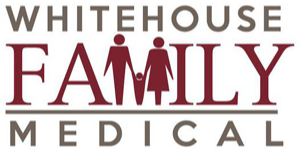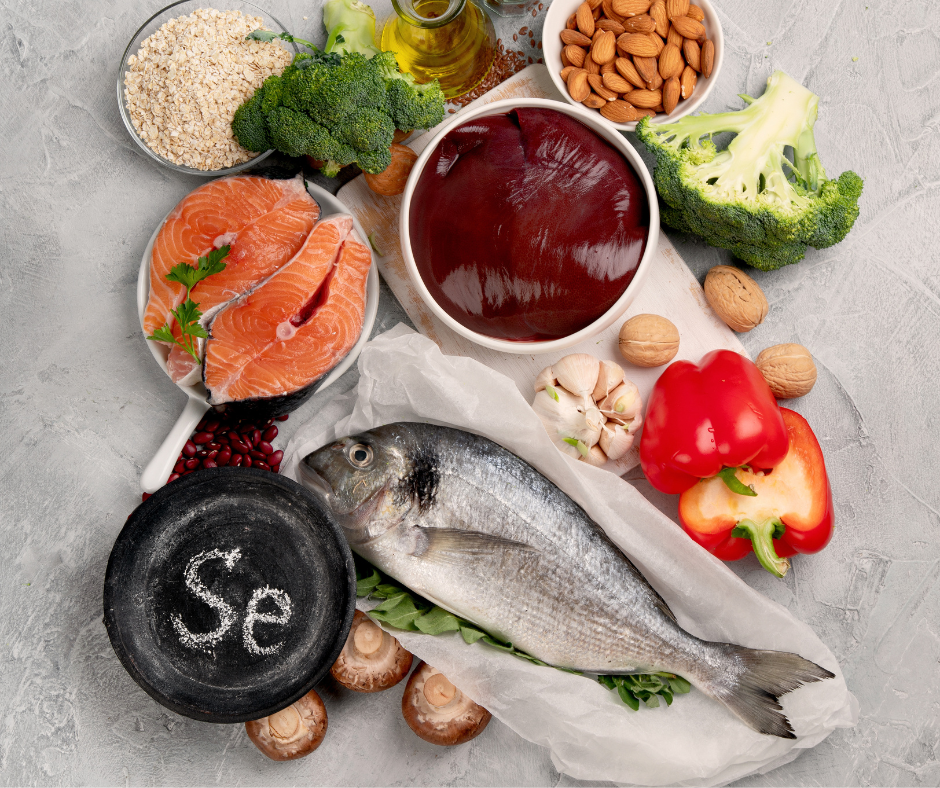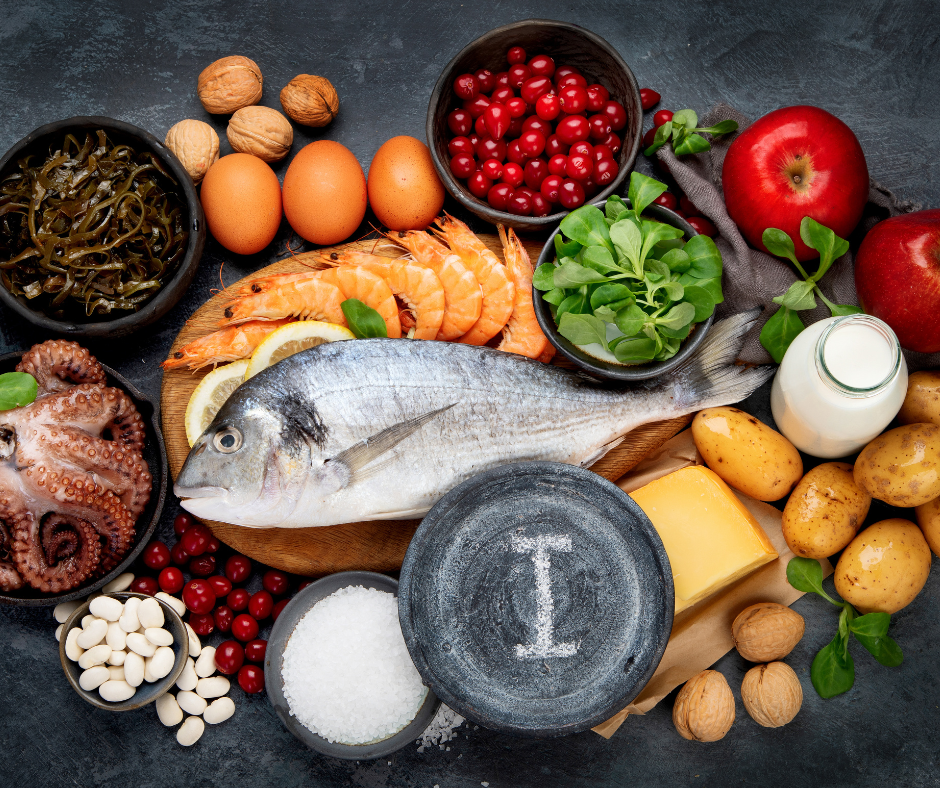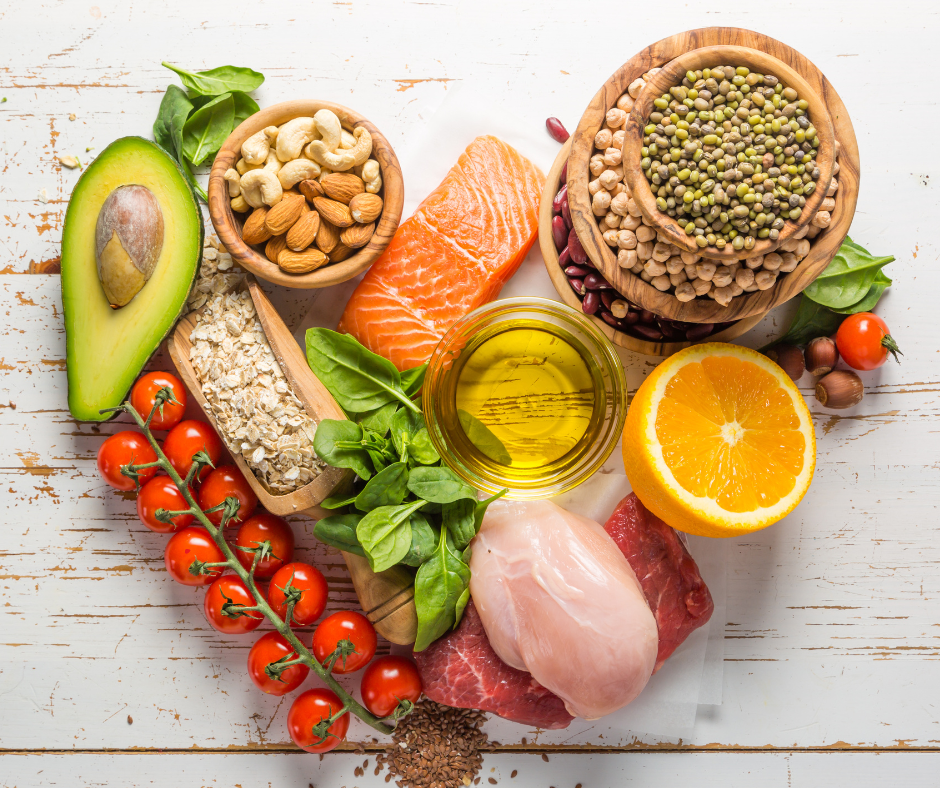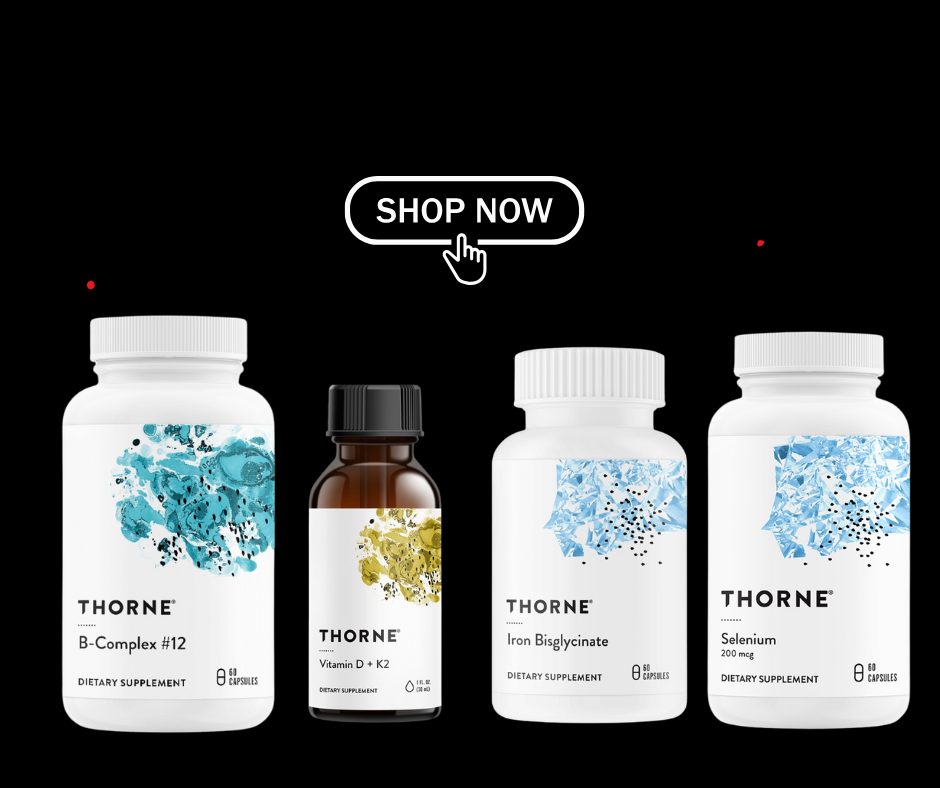Are You Getting Enough of These Essential Vitamins and Minerals? Here's Why You Might Not Be
Dec 03, 2024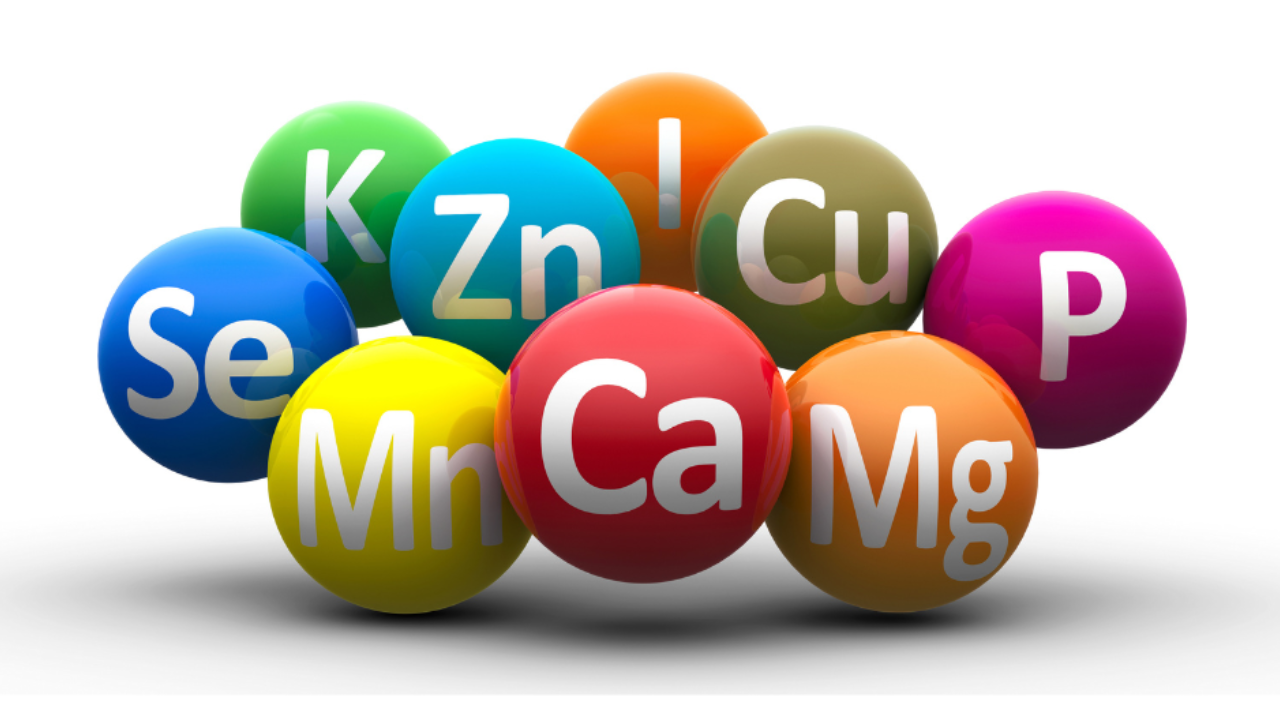
Many of us believe we're getting all the nutrients we need from our diet, but the truth is that certain vitamins and minerals are often lacking in modern diets. Deficiencies in essential nutrients like manganese, selenium, iodine, and iron are surprisingly common, and they can have a big impact on your overall health.
In this post, we’ll explore the reasons why our diets might fall short in these key minerals, why absorption might be a challenge, and what foods you should focus on to get more of these nutrients. Plus, we’ll highlight some signs and symptoms of deficiencies, so you can spot them early.
1. Manganese: The Overlooked Mineral
What it does: Manganese is a trace mineral that plays a key role in bone health, metabolism, and the body's antioxidant defenses. It helps form connective tissue, bones, and blood-clotting factors, and it is also involved in regulating blood sugar levels.
Why we’re deficient: Manganese deficiency is rare, but it can happen in people with poor diets or malabsorption issues. The modern diet, high in refined grains and low in whole grains, can contribute to insufficient manganese levels, as whole grains are one of the best sources of this mineral.
Signs of deficiency:
- Bone pain or weakness
- Slow wound healing
- Mood changes (irritability, anxiety)
- Poor blood sugar regulation
How to get more:
- Foods to focus on: Whole grains (like oats, brown rice), nuts (especially almonds), seeds (such as flaxseeds), leafy greens (spinach, kale), and legumes.
Absorption Tip: Pair manganese-rich foods with vitamin C-rich foods (like bell peppers or citrus) to boost absorption.
2. Selenium: The Antioxidant Powerhouse
What it does: Selenium is essential for thyroid function, immune system support, and protecting the body from oxidative stress. It plays a role in DNA synthesis and in reducing inflammation.
Why we’re deficient: Selenium deficiency is often linked to soil depletion. In regions where soil selenium content is low (such as certain parts of Europe and Asia), dietary selenium intake can also be low. Those who consume a lot of processed foods or who don't eat enough selenium-rich foods like Brazil nuts may be at risk.
Signs of deficiency:
- Weak immune system (frequent infections)
- Fatigue or sluggishness
- Hair loss
- Thyroid problems (hypothyroidism)
How to get more:
- Foods to focus on: Brazil nuts (just a few a day), seafood (tuna, salmon), eggs, sunflower seeds, and whole grains.
Absorption Tip: Selenium is better absorbed from animal-based sources, but vegetarians can still meet their needs by consuming nuts and seeds regularly.
3. Iodine: The Thyroid Regulator
What it does: Iodine is crucial for thyroid health, as it helps produce thyroid hormones that regulate metabolism. Without enough iodine, your thyroid can become enlarged, a condition known as goiter.
Why we’re deficient: Iodine deficiency is becoming less common in developed countries due to iodized salt, but it is still an issue in areas where iodine-rich soil is scarce. People who avoid salt for health reasons may also miss out on iodine unless they are consuming iodine-rich foods regularly.
Signs of deficiency:
- Goiter (enlarged thyroid)
- Fatigue, weight gain, and depression
- Dry skin, hair loss
- Cold intolerance
How to get more:
- Foods to focus on: Iodized salt, seaweed (nori, kelp), seafood (fish, shrimp), dairy products, and eggs.
Absorption Tip: Too much calcium or iron can interfere with iodine absorption, so be mindful of how much dairy and iron-rich foods you’re eating in tandem.
4. Iron: The Oxygen Transporter
What it does: Iron is essential for creating hemoglobin, the protein in red blood cells that carries oxygen throughout the body. Without enough iron, your body can’t produce enough healthy red blood cells, leading to anemia.
Why we’re deficient: Iron deficiency is one of the most common nutrient deficiencies worldwide, especially among women of childbearing age and people with restricted diets (like vegans). While red meat is a rich source of iron, plant-based sources contain a form called non-heme iron, which is harder for the body to absorb.
Signs of deficiency:
- Fatigue and weakness
- Pale skin
- Shortness of breath or dizziness
- Cold hands and feet
- Brittle nails and hair loss
How to get more:
- Foods to focus on: Red meat, poultry, fish, lentils, spinach, beans, tofu, and fortified cereals.
Absorption Tip: To enhance non-heme iron absorption from plant-based foods, pair them with vitamin C-rich foods (like citrus fruits, bell peppers, or tomatoes).
5. Vitamin D: The Sunshine Vitamin
What it does: Vitamin D is essential for bone health and immune function. It helps the body absorb calcium, which is necessary for building and maintaining strong bones and teeth.
Why we’re deficient: Many people don’t get enough vitamin D because they spend most of their time indoors, especially in colder climates or during the winter months. Additionally, certain health conditions (like Crohn's disease) and skin types (darker skin has less efficient vitamin D production) can affect absorption.
Signs of deficiency:
- Bone pain and muscle weakness
- Increased risk of fractures
- Fatigue or tiredness
- Depression or low mood
- Frequent illness or infections
How to get more:
- Foods to focus on: Fatty fish (salmon, mackerel), fortified dairy products, eggs, mushrooms exposed to sunlight, and fortified plant-based milks (like almond or soy milk).
Absorption Tip: Vitamin D is best absorbed with fat, so try to consume it with a healthy fat source, like avocado or olive oil.
Why We Might Not Be Absorbing What We Eat
Even if you're eating nutrient-rich foods, your body might not be absorbing those vitamins and minerals efficiently. There are several factors that can interfere with nutrient absorption:
- Gut health issues: Conditions like irritable bowel syndrome (IBS), celiac disease, or inflammatory bowel diseases (Crohn's and ulcerative colitis) can impair nutrient absorption.
- Medications: Certain medications, like antacids or proton pump inhibitors, can interfere with nutrient absorption.
- Excessive consumption of certain nutrients: High levels of calcium can compete with magnesium or iron for absorption in the intestines, for example.
Takeaways: How to Improve Your Nutrient Intake
- Diversify your diet: Aim to eat a wide range of whole foods, including fruits, vegetables, whole grains, lean proteins, and healthy fats.
- Watch your gut health: Prioritize gut-friendly foods like probiotics (yogurt, kefir, sauerkraut) and fiber-rich foods to improve absorption.
- Combine nutrients wisely: Certain foods work better together (like vitamin C with iron), so try to pair foods that enhance absorption.
- Supplement if necessary: If you suspect you're not getting enough of a certain nutrient, talk to a healthcare provider about supplements.
By being aware of the key nutrients you're lacking and the factors that influence absorption, you can take steps to ensure you're giving your body the fuel it needs to thrive.
Stay connected with news and updates!
Join our mailing list to receive the latest news and updates from our team.
Don't worry, your information will not be shared.
We hate SPAM. We will never sell your information, for any reason.
